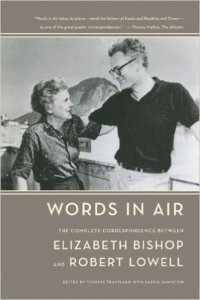In late December, a string of rejections coupled with the endless gray days of the Midwestern sky, caused me to stop writing altogether during January and most of February. I felt uninspired, and even though I can usually pull myself through a slump pretty easily, I’ve struggled this time.
A friend of mine decided that rather than doing one big annual New Year’s Resolution, she would do a series of thirty-day pushes…thirty days without sugar, thirty days of hiking outdoors…whatever. I thought that sounded pretty good, and that I’d give it a try. I made a list of things I could do for thirty days straight. It seems a lot less daunting than something like, I’m going to write a poem every day this year, for example. I thought, it’ll get me back in the seat in front of the white page for at least one month regardless of how I feel.
Last October and November, I decided I should start testing some of the poems I had written throughout 2015, by sending them to journals. Hence the rejections. What, I wondered? Had I just lost it? Was I entirely clueless? Maybe I’d simply forgotten how badly I take rejection and how frequently I get them. You can call it a character flaw, but it’s just human nature. It’s disappointing. And, some people have learned to deal with it better than me. The only alternatives are to either stop writing altogether, or to stop submitting, or to teach yourself to better deal with rejections, (and keep honing your poems). It’s a reality of the writing life.
The first thirty-days, I started with a daily yoga practice combined with journaling about the experience. I finished that a few days ago and it felt like success; so, I decided to go on to the next thing on my list which was writing 1,000 words every day for 30 days (that’s a lot for me!)—without fail. I decided to not limit myself to poetry or to a literary effort, but I did want to avoid pure journal-like entries. And, I decided that if I write poetry which is usually not 1,000 words, that I had to write up an analysis of what I’d written and what I was trying to accomplish in the poem in order to get to 1,000 words for the day.
The first day, I wrote a memoir piece about an incident years ago, when I—no kidding—brought an auctioneer to tears. It felt great to have written something. The second day, I wrote a review of Michael Moore’s new movie, “Where to Invade Next.” Neither of these were penned with publication in mind, but they felt satisfying nonetheless.
Today, for some reason, Elizabeth Bishop‘s poem, “One Art,” which is about “losing” kept going over and over in my mind, but instead of the word “losing,” I found I was saying the word rejection… “the art of rejection isn’t hard to master.”
 According to a letter written to Robert Lowell, Elizabeth Bishop wrote “One Art” sometime early in January 1976, just a little less than four years before her death on October 6, 1979. She enclosed a copy of the poem in the letter dated February 14th, 1976, and spoke of it in the last paragraph.
According to a letter written to Robert Lowell, Elizabeth Bishop wrote “One Art” sometime early in January 1976, just a little less than four years before her death on October 6, 1979. She enclosed a copy of the poem in the letter dated February 14th, 1976, and spoke of it in the last paragraph.
“I’m enclosing the one & only villanelle of my life, written about 6 weeks ago” (Elizabeth Bishop and Robert Lowell, edited by Thomas Travisano with Saskia Hamilton 784).
In Lowell’s letter back to her, sent on March 4th of the same year, he wrote:
“An aching subject, as the art even of losing must be. Your stoical humor persuades me that loss is an advantage” (785).
And, in his final paragraph, he wrote,
“I’ve been writing furiously in my doldrums, and always feel on the edge of being too raw…One needs to hold a shield before one’s feelings and the reader… Right now I’d like to borrow your villanelle armor” (786).
I don’t know if Lowell went on to write a villanelle, though he clearly identifies one way form can function in poetry, which is to help contain it’s matter–‘to hold the shield before one’s feeling and the reader.’ Somehow Lowell and Bishop’s brief exchange on the poem, spoke to me.
As I was thinking about Bishop’s poem, and my own silly mental twist on it, I decided to write a poem imitating the style, meter, and character of Bishop’s. I set out to do this for my own enjoyment, and in no way, do I hold my poem up to hers; but it’s the first poem—the first thing I’ve really wanted to write in a long time, and I had a lot of fun doing it.
Works Cited
Elizabeth Bishop and Robert Lowell, edited by Thomas Travisano with Saskia Hamilton, Words in Air, The Complete Correspondence Between Elizabeth Bishop and Robert Lowel. New York, NY: Farrar, Straus and Giroux, 2008.
